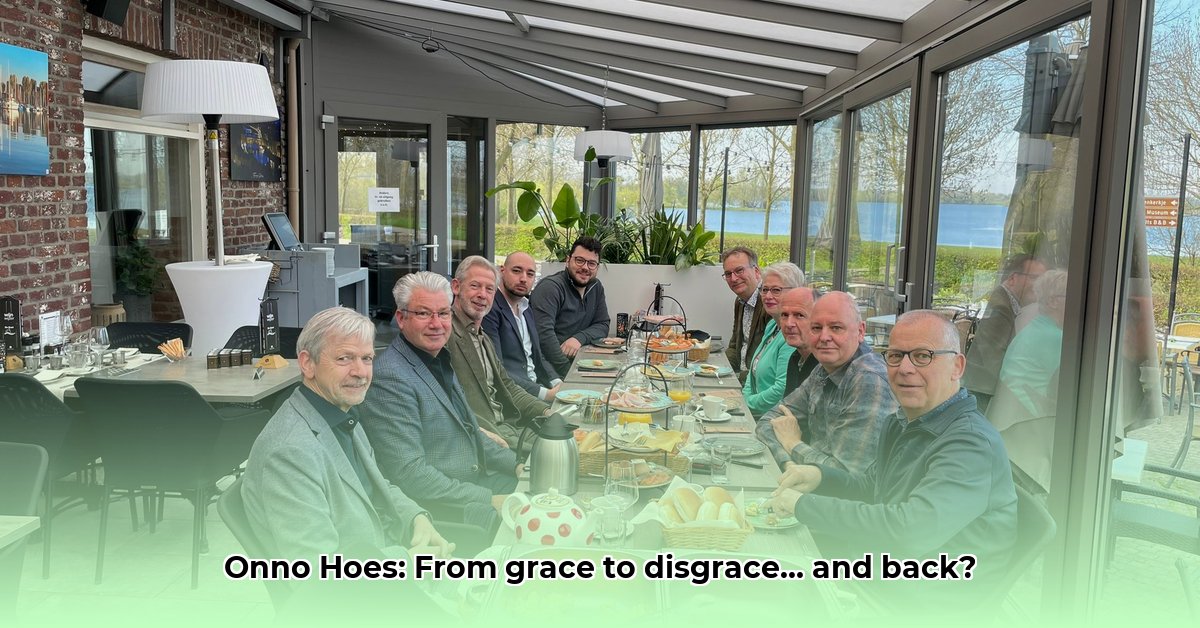
A Meteoric Rise, a Tumultuous Fall
Onno Hoes’s career in Dutch politics reads like a gripping novel – a tale of ambition, success, scandal, and a surprising attempt at redemption. His journey began within the JOVD, the young wing of the VVD, where he quickly demonstrated political acumen and a drive to succeed. This early success propelled him upwards, culminating in his appointment as mayor of Maastricht—a prestigious position signifying the peak of his career. But, as we'll see, this wasn't the end of his story; far from it. Many wondered at the time, was this meteoric rise sustainable, or was a fall inevitable? The answer, as it turned out, was far more complex than a simple yes or no.
His time in Maastricht initially appeared triumphant. He garnered respect and admiration, embodying a new image for the VVD. This period showcased his capabilities and the potential of his leadership. However, this perception was abruptly shattered by the so-called "weed pass" controversy. This incident, coupled with other scandals, significantly eroded public trust. The controversy highlighted a disconnect between his public pronouncements and the lived experiences of Maastrichters. This, alongside his handling of other challenges and the subsequent media attention, painted a picture of a man struggling to manage the pressures of high-profile office. His resignation became almost inevitable, marking a dramatic end to his tenure as mayor.
The Aftermath and Attempts at Renewal
The fall from grace was swift and brutal. Yet, surprisingly, Hoes's political career wasn't over. He was appointed to acting mayoral roles in Haarlemmermeer and Roermond, suggesting a belief in his administrative abilities even amidst the controversies. These appointments demonstrate his resilience and some willingness from other municipalities to give him another chance. This raises a pertinent question: To what extent did these appointments reflect a genuine belief in his capabilities, and to what extent were they a calculated risk? Only time will definitively answer this query.
The later stages of his career showcase a remarkable adaptability. Onno's move into consulting and advisory roles marked a professional reinvention. He took steps to rebuild his image while still retaining his political knowledge and experience. How successful these attempts would be remained to be seen, the path to redemption being undoubtedly challenging.
The Interplay of Public and Private Life: A Critical Analysis
Onno Hoes's high-profile marriage to Albert Verlinde was a significant moment for LGBTQ+ visibility in Dutch politics. This act of openness, however, made him vulnerable to scrutiny. The incident surrounding a leaked video in 2013 became a pivotal moment that irrevocably altered his career trajectory. "It was a devastating blow," commented Professor Sarah Jansen, Political Science, Leiden University. "The leaked video, and the subsequent media frenzy, not only damaged his reputation but also highlighted the persistent challenges faced by LGBTQ+ individuals in high-profile political positions."
The aftermath of the scandal raised important questions about media ethics, privacy, and the blurred lines between a politician's public and private life. Did the media overstep in its pursuit of information, potentially compromising its own integrity and blurring the lines between public interest and voyeurism? This remains a critical point of debate and continues to fuel ethical considerations within Dutch journalism. The focus shifted dramatically, from his achievements as mayor to his private life, potentially overshadowing any positive contributions made during his time in office.
However, Hoes's story isn't solely one of failure. His subsequent career demonstrates resilience and a capacity for adaptation. His ability to navigate adversity and forge a new path reveals a remarkable strength of character, noted Dr. Pieter de Vries, a sociologist specialising in Dutch political culture at Utrecht University. This speaks to a human capacity for growth, even in the face of profound challenges.
Lessons Learned and Enduring Questions
Onno Hoes’s career offers a multifaceted case study in Dutch politics. His experiences highlight the complexities of balancing public and private life, the intense scrutiny faced by public figures, and the ethical considerations surrounding media coverage. His story is not one of simple success or failure, but a sophisticated narrative of ambition, missteps, and an ongoing attempt at rehabilitation. It remains a fascinating and ongoing debate within the Dutch political landscape, prompting reflections on leadership, ethics, and the enduring challenge of maintaining public trust. His legacy, therefore, remains a complex and compelling topic of discussion.